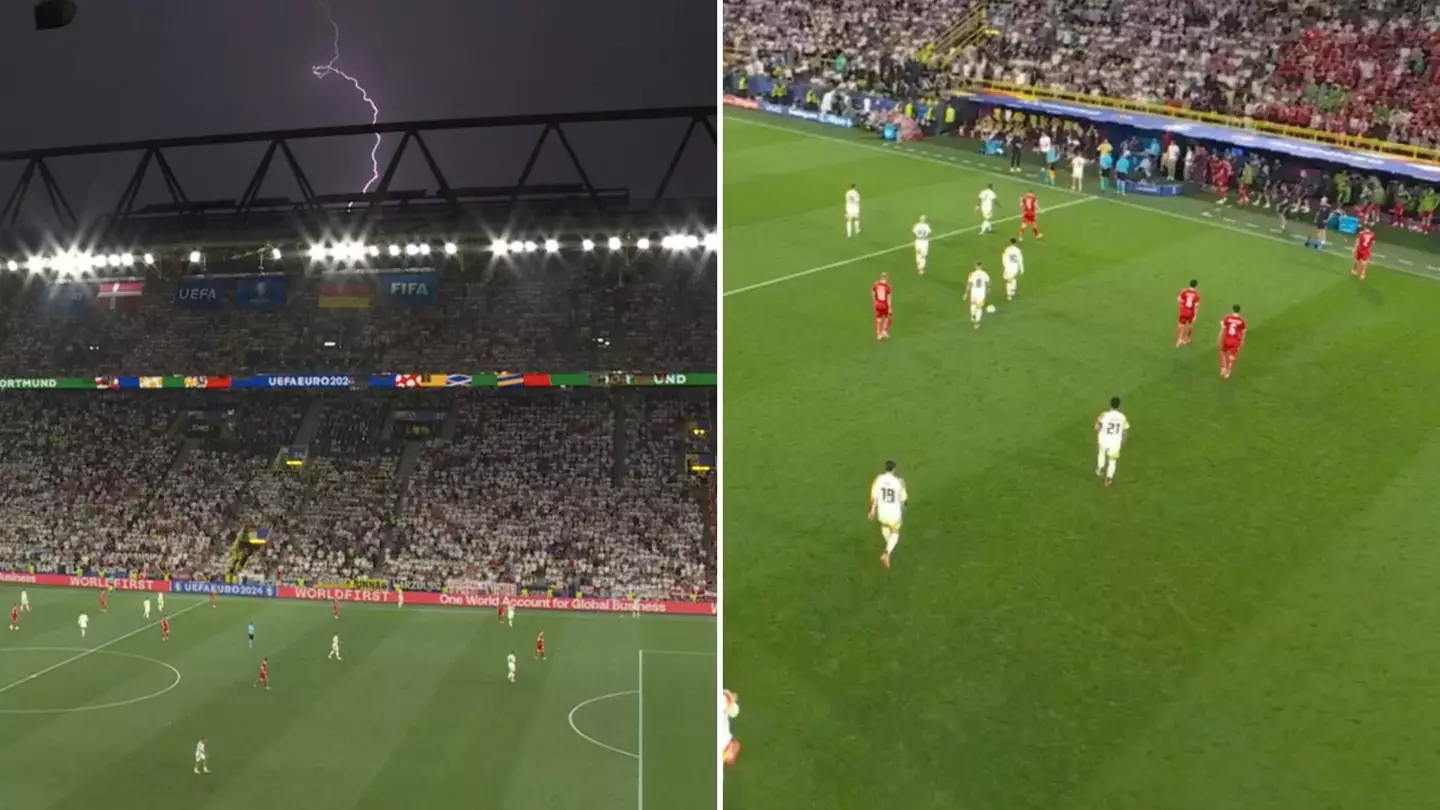
The last-16 clash between Germany and Denmark at Euro 2024 has been temporarily suspended due to adverse weather.
In the 34th minute of Saturday's game at the Signal Iduna in Dortmund, both sets of players were ordered to leave the pitch by referee Michael Oliver.
As you can see in the footage below, a huge bolt of lightning can be seen over the stadium as players and staff gathered on the touchline.
It was confirmed that the game would be suspended for at least 30 minutes and if there was another lightning strike within a 10-mile radius of the stadium, there will be a further delay.
Advert
However, both teams returned to action after half an hour as weather conditions improved.
So what would have happened if the last-16 tie was called off mid-game?
"If a match cannot start or cannot be played in full, the full or remaining match time is, as a rule, played on the next day, without prejudice to any possible disciplinary measures," says UEFA's rules and regulations.
"For that purpose, the host associations must conclude all the necessary agreements to ensure that the required facilities are available and can be operated."
If a match cannot be rescheduled the next day, then UEFA administration will fix a new date, during or as close as possible to the international match calendar window concerned.
The rescheduling may entail exceptions to the regular match scheduling pattern.
"As a rule, a rescheduled match is played at the same venue," UEFA add. "If the circumstances require a change of venue, the UEFA administration must approve the alternative venue.
"For cases of extreme urgency and to ensure the match is completed, if necessary without spectators, the host association must guarantee a back-up stadium, for approval by the UEFA administration. For emergency back-up stadiums, exceptions can be made to all existing stadium requirements."